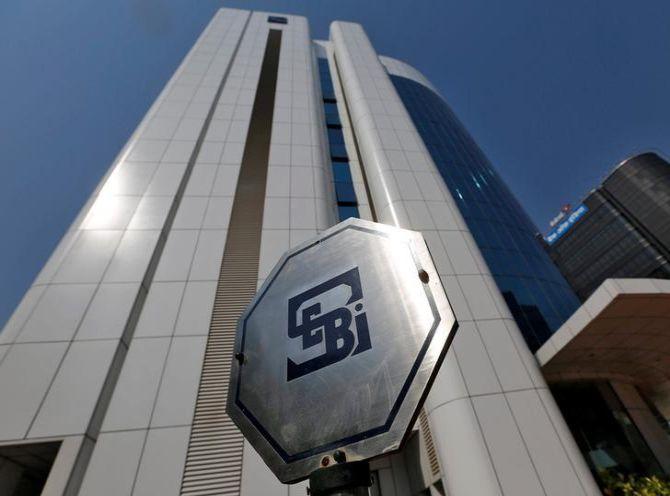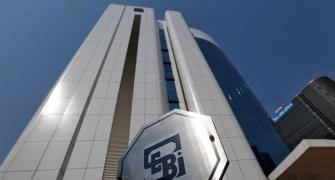The top three companies in terms of the largest value of physical shares showed over 30 per cent shares are held in physical form.
Two of the top three were part of the S&P BSE Sensex and the Nifty50 indices.
Sachin P Mampatta reports.

The Securities and Exchange Board of India may have a heavy task in hand with its recent attempts to phase out physical share certificates.
While most trading happens in demat form, physical shares account for a significant chunk of holdings by value.
The latest analysis of shareholding patterns of 3,448 listed companies shows that the vast majority of them (3,282) had some physical shares as of September 2018.
These physical shares were worth Rs 3.91 trillion.
Sebi had come up with norms recently on transferring securities in physical mode for those processing such requests, done through agencies called registrar and transfer agents (RTAs).
"It has been brought to the notice of Sebi that RTAs are seeking various documents for effecting transfer of securities and the documents sought vary across RTAs," said the circular dated November 6.
The circular said it had received representations on the issue.
It subsequently held meetings with the Registrars Association of India (RAIN) and Depositories.
A standardised procedure has subsequently been arrived at to effect transfers in physical mode.
It looked at issues such as non-availability of identification documents and those related to name mismatches, among other issues.
The regulator had discussed the issue of pushing dematerialisation in a bigger way in its March 2018 board meeting.
The minutes of the meeting pointed out many disadvantages of the physical format.
It said a lack of know-your-client (KYC) procedures in physical transfers left it open to misuse.

The KYC procedure helps investors' identities to be clearly established.
The board meeting minutes said dematerialisation could help stop other fraudulent activities as well.
"...in order to protect the interests of the investors in the securities market and to curb fraud and manipulation involved in physical transfer of securities by unscrupulous entities, it is imperative to mandate compulsory holding of securities in dematerialised form for effecting transfer," it said.
Following subsequent queries on the matter that the regulator noted in an August 2018 circular, it said shares could still be held in physical form.
It is only their transfer that requires dematerialisation.
"The amendment does not prohibit the investor from holding the shares in physical form, investor has the option of holding shares in physical form even after December 5, 2018," said the August 10 circular.
It added transfers in physical form could still happen in the case of inheritance or succession.
It can also be made in the case of changes in the order of the names that appear on a share certificate.
Other transfers would require dematerialisation, the circular had said.
This would still mean a lot needs to be done before the dematerialisation objective is fully met.
The top three companies in terms of the largest value of physical shares showed over 30 per cent shares are held in physical form.
Two of the top three were part of the S&P BSE Sensex and the Nifty50 indices.










